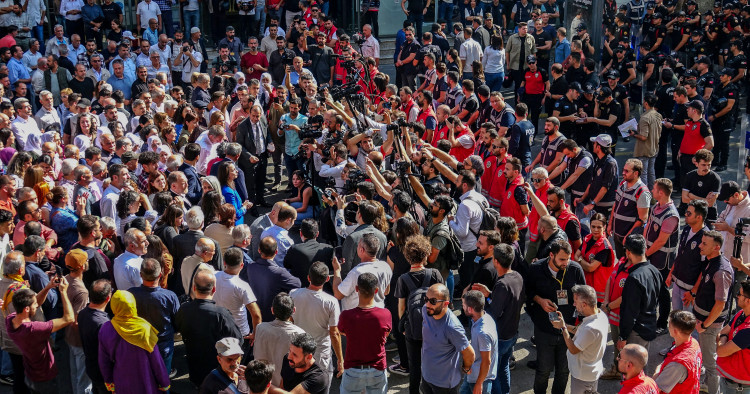After decades of repression, many of Turkey’s Kurds are hopeful that their long struggle for basic rights may finally be nearing a breakthrough. That hope is fueled by newly launched talks between Turkish President Recep Tayyip Erdogan’s nationalist coalition and the imprisoned leader of the Kurdish Workers Party (PKK), Abdullah Ocalan. The talks have already produced the historic declaration by the PKK to disband and renounce armed struggle. Pro-Kurdish politicians have praised Erdogan’s efforts to pursue a peaceful solution.
But both precedents in other countries and Erdogan’s own record suggest a different outcome. We know from case after case that autocrats—whether they are actual dictators or strongmen at the head of flawed democracies—rarely resolve ethnic conflicts. They often freeze or suppress them, sidestep root causes, and instrumentalize the unresolved conflict as an excuse to tighten their grip on power. The result is rarely peace—just postponed instability.
Photo by Mehmet Masum Suer/SOPA Images/LightRocket via Getty Images
The Middle East Institute (MEI) is an independent, non-partisan, non-for-profit, educational organization. It does not engage in advocacy and its scholars’ opinions are their own. MEI welcomes financial donations, but retains sole editorial control over its work and its publications reflect only the authors’ views. For a listing of MEI donors, please click here.













